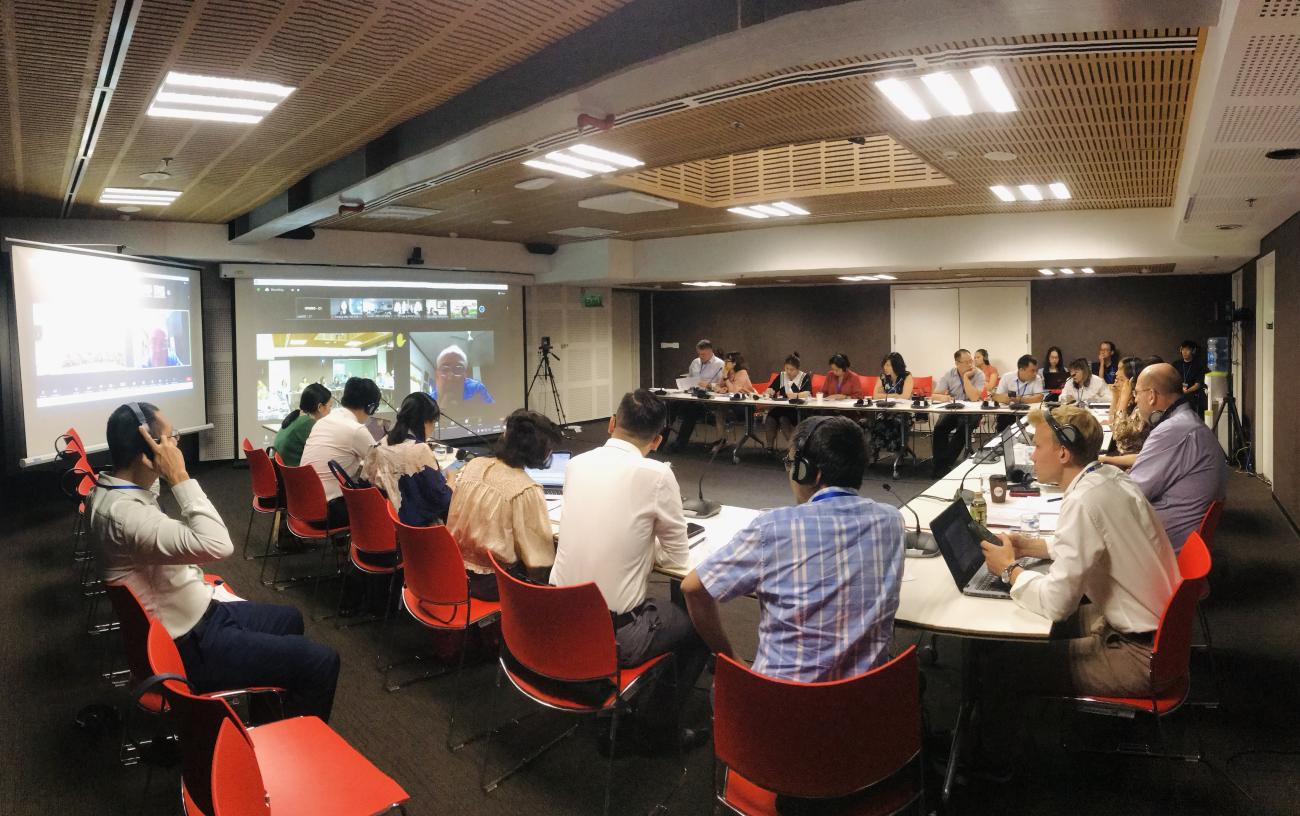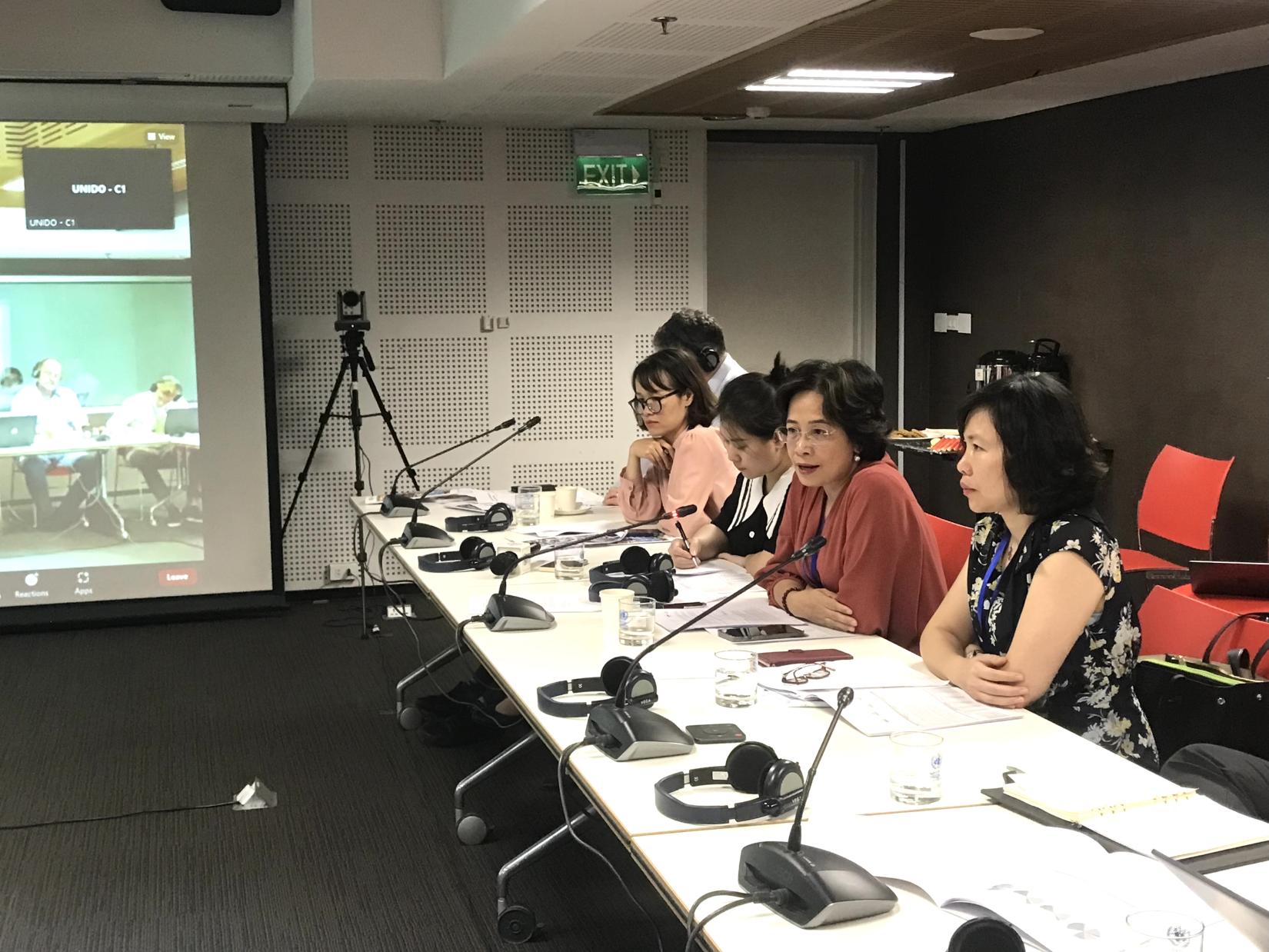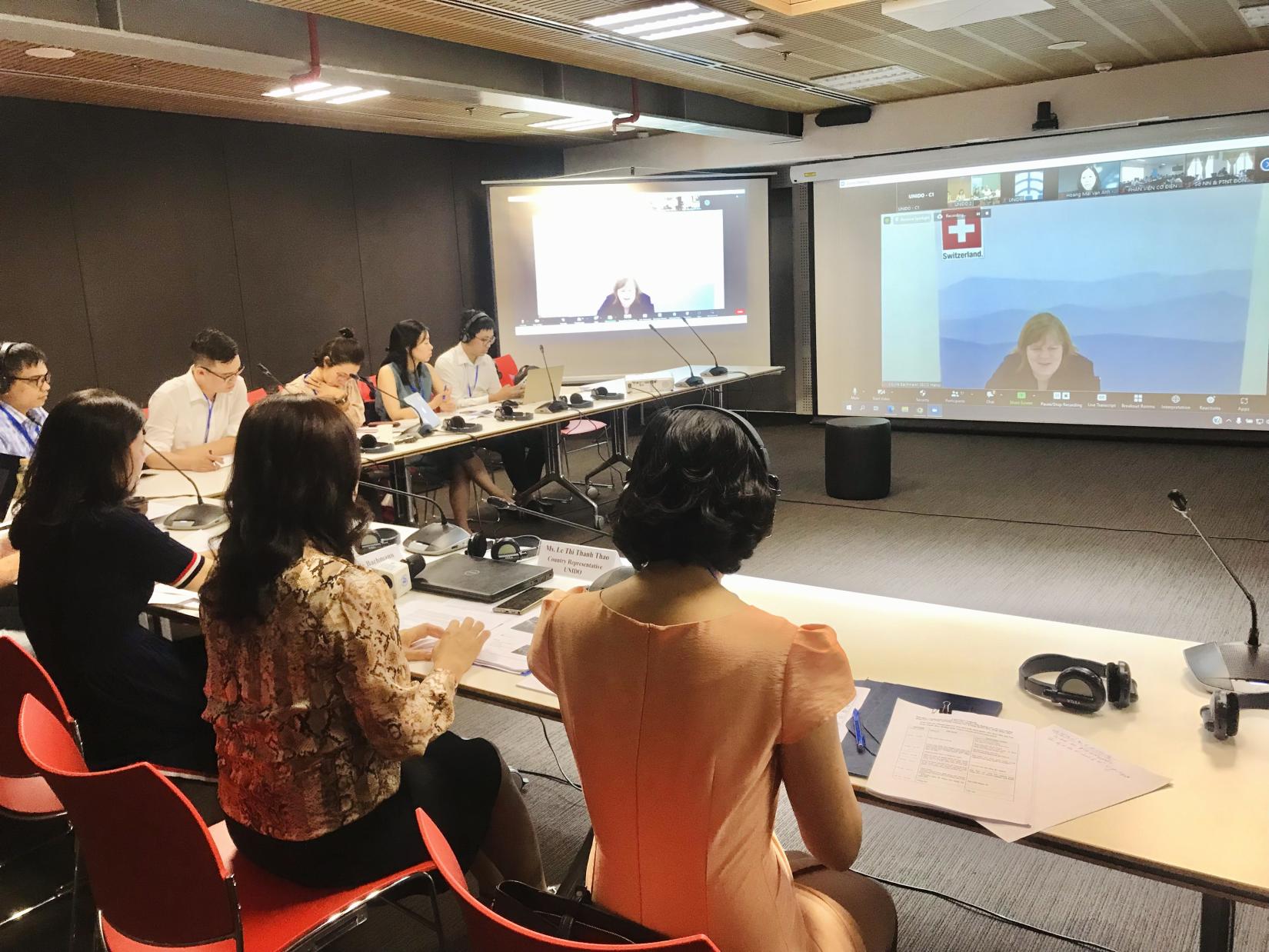Assessing major compliance challenges of Vietnamese food and feed products in export markets

A national workshop from Standards Compliance Analytics policy workshop series
On 29 September, Agro Processing and Market Development Authority (AgroTrade) and UNIDO Viet Nam organized the Roundtable meeting “Standards Compliance Analytics of Vietnamese agri-food in five markets: Australia, China, the European Union, Japan, and the United States” with 70 stakeholder representatives. The event is under the framework of the Global Quality and Standards Programme (GQSP) Viet Nam. The Program is a part of Switzerland’s economic development cooperation with Vietnam, implemented by Swiss State Secretariat for Economic Affairs (SECO).
Technical regulations and standards are increasingly prevalent and continuously evolving in the international trade of food and nonfood (industrial) products.
There is evidence that many countries, including Viet Nam, face challenges in complying with the safety and quality requirements that these regulations and standards lay down. With scarce financial and technical resources amongst a plethora of capacity-building needs, it is crucial to identify where the most acute compliance challenges are faced.
Since 2008, United Nations Industrial Development Organization (UNIDO) has regularly collected evidence about trade-related challenges and their evolution over time, particularly in the area of compliance with requirements set of quality, certification, labeling, etc by international markets. As a result of this process, the Standards Compliance Analytics (SCA) tool by UNIDO uses rejection data to identify the key compliance challenges faced by exporting countries and thereby enhance the targeting of investments in building relevant compliance capacities.
The “Standards Compliance Analytics Report” for Viet Nam focuses on analyzing the trends and patterns of Vietnamese agri-food import rejections in five major international markets, namely Australia, China, the European Union (EU), Japan, and the United States (US). It was introduced to relevant stakeholders including representatives from government agencies, research institutes, associations, and agri-food exporting businesses in the Roundtable meeting “Standards Compliance Analytics of Vietnamese agri-food in five markets: Australia, China, the European Union, Japan, and the United States” on 29 September 2022.
“Recent trends in the global market have sent us a strong message. Together, we need to not only ensure food security but also ensure nutrition security for all consumers. This could be achieved not only by production practices but also standardization in production and consumption.” – Mr. Nguyen Quoc Toan – Director General of Agro Processing and Market Development Authority (AgroTrade) said in his opening speech.
In the Roundtable meeting, the participants had the chance to assess the data and gain insights into the challenges faced by Viet Nam in complying with product quality and safety standards and regulations in agri-food trade towards both regional and global markets.
According to the report, the US market had the largest share of rejections (42%) in the total number of rejections in the period from 2010 to 2020. The share of the Chinese market of the total number of rejections has increased significantly from 10% in 2010 to 44% in 2020. The most common reasons for rejection is hygienic condition/controls in the U.S. market, bacterial contamination in the Chinese and EU-18 markets, veterinary drug residues in the Japanese market, and labeling in the Australian market.
Participants also shared a lot of practical experience from their businesses and contributed to the policy recommendations in the report.

“I support the recommendations that the report has outlined. Among them, the recommendation to disseminate the existing trade-related digital tools and develop other digital tools to improve the various stakeholders’ knowledge on food safety, non-tariff measures, conformity assessment processes and bodies, regulations, standards, etc. is specific and concrete. It needs to be put forward as soon as possible.” – shared Ms. Nguyen Thi Lan Huong, Chairperson of Viet Phuc Food Production and Trading Co. Ltd.
“The discussion in this roundtable meeting will help different partners and actors along the value chain to gain insights into the trends and patterns of Vietnamese agri-food standard compliance in five major international markets, as well as inform the policy and technical assistance to navigate and focus efforts in addressing compliance issues in a more effective and focused manner.” – Ms. Le Thi Thanh Thao – Country Representative of UNIDO Viet Nam shared.
“SECO has committed as an active donor at global level and also in Viet Nam in promoting the global quality assurance system to ensure they align with WTO standards and other free trade agreement commitments more effectively. SECO is proud to support the strong partnership between UNIDO and MARD to improve the quality and standards compliance capacity of agricultural value chains.” – shared Ms. Sibylle Bachmann - Deputy Head of Cooperation – Switzerland’s State Secretariat for Economic Affairs (SECO).

Implemented in 11 countries including Vietnam, GQSP has been supporting enterprises to gain access to and to benefit from global markets. The Programme’s overall objective is to promote trade and competitiveness by strengthening the quality and standards compliance capacity of SMEs to facilitate market access.


